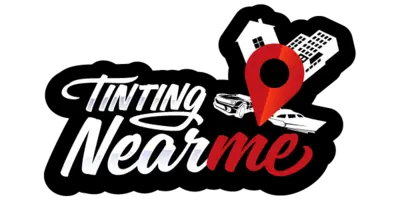2024 Missouri Legal Tint Laws Explained
Imagine cruising down the open highways of Missouri, the sun’s golden rays glinting off your car’s sleek windows. Now, if you’re considering enhancing your vehicle’s aesthetic with tinted windows, you’ll need to familiarize yourself with the 2024 Missouri legal tinting laws. Sure, the allure of tinted windows extends beyond just the appeal of a mysterious, stylish look. They also offer you essential benefits like privacy and protection from harmful UV rays. But, before you rush off to your nearest auto shop, you might want to know, how dark can you go? What are the state’s rules on reflective tints? Stick around, because there’s more to these regulations than meets the eye.
The information on myeyerx.net isn’t legal advice; consider it a starting point. Always verify with local and state authorities, as the final decision rests with you. We are not lawyers. For specific legal guidance, we can refer you to legal experts. Remember, knowledge of both state and local laws is essential, and even law enforcement might not be fully updated. We aim for accuracy but advise double-checking for the latest regulations.
Key Takeaways
Key Takeaways
Key Takeaways
- Sedans and SUV/vans in Missouri must have front side windows that allow more than 35% of light in.
- There are no restrictions on the darkness of back side and rear windows in Missouri.
- Violations of tint darkness laws can result in fines of up to $75.
- Missouri allows a 3% variance in tint darkness, providing some flexibility for vehicle owners.
Need Help Getting a Medical Exemption?
Our Doctors Are Here For You!
MyEyeRx was established with the objective of simplifying the complex landscape of state regulations pertaining to legal tint medical exemptions for window tinting. For individuals seeking to navigate these regulations without resorting to a do-it-yourself approach, we offer a streamlined solution. Our team includes qualified medical professionals who are available to conduct consultations via Zoom. These sessions are designed to assess your eligibility for a medical exemption, ensuring a personalized and efficient process for acquiring the necessary documentation.
Understanding Missouri’s Tint Darkness Laws
Often misunderstood, Missouri’s tint darkness laws stipulate that your sedan or SUV/van front side windows must allow more than 35% of light in, but there’s no restriction on the darkness of your back side and rear windows. This is the cornerstone of understanding Missouri’s tint darkness laws. So, when you’re considering car window tinting, bear these tint limitations in mind.
Under the state laws, Missouri tinting laws are more lenient compared to other states. However, don’t let that fool you into complacency. There’s a fine of up to $75 for violations. Therefore, it’s crucial to adhere to the window tint laws to avoid penalties.
Interestingly, the Missouri window tint rules also account for a 3% variance in tint darkness. This means, your cars window tint could technically allow a little less than 35% of light in and still be within the legal limits. But why take the risk? It’s always a good idea to play it safe and stick to the stipulated 35% light allowance.
In addition, the state laws require dual side mirrors if your back window is tinted. This is to ensure visibility is not compromised, considering there’s no restriction on the tint darkness for back side and rear windows.
What’s more, medical exemptions are a part of Missouri’s tint laws. If you have a medical condition that necessitates special tint, this provision is for you. However, it’s advised to consult with a professional before proceeding.
Reflective Tint Regulations in Missouri
Shifting our focus from tint darkness, let’s now explore the regulations surrounding reflective tint in Missouri. Reflective tint, often used to reduce heat and glare, can give your vehicle a unique look, but it’s essential to understand the specific laws governing its use.
Missouri law allows non-reflective tint above the AS-1 line on the windshield. However, when it comes to reflective tint, Missouri window tinting laws stipulate it must not exceed 35% reflectivity on front and back side windows for both sedans and SUVs or vans. This regulation helps minimize the potential for glare, which can pose a safety risk for drivers and pedestrians alike.
Beyond that, any darkness of tint can be used on back side windows and rear windows of both sedan cars and SUVs/vans in Missouri. However, keep in mind that if your car’s back window is tinted, Missouri law requires dual side mirrors for safety purposes. This rule ensures drivers can still see adequately behind their vehicles, even with windows tinted.
While these laws might seem restrictive, they’re designed to balance drivers’ preferences for tinted windows with safety considerations. But don’t forget, exceptions do exist. Missouri law permits medical exemptions for special window tinting. If you have a medical condition that necessitates darker or more reflective tints, you might be eligible for such an exemption.
Understanding and complying with the reflective tint regulations in Missouri is crucial to avoid potential fines and to ensure your car window tint meets legal standards. So, whether you’re looking to block heat, add privacy, or just enhance your vehicle’s aesthetics, make sure you’re doing it within the bounds of the law.
Exploring Additional Missouri Tint Rules
Diving deeper into Missouri’s tint regulations, you’ll find a few additional rules that significantly impact your choices for window tinting. These rules vary based on vehicle type and window location, but all aim to ensure safety for drivers and ease of visibility for law enforcement.
- Vehicle Type and Tint Darkness: Missouri legal tint laws allow for different tint darkness depending on your vehicle type. If you’re driving a sedan, your front side windows should allow more than 35% of light in. The same rule applies if you’re driving an SUV or a van. This rule is in place to maintain a certain level of visible light transmission for safety purposes.
- Dual Side Mirrors for Tinted Back Windows: If your back window is tinted, the state mandates that your vehicle must have dual side mirrors. This requirement is crucial for visibility, particularly when reversing or changing lanes.
- No Explicit Ban on Tint Colors: Unlike some states, Missouri doesn’t explicitly ban any tint colors. However, it’s wise to consult with a professional before choosing a tint color that might draw unnecessary attention from law enforcement.
- Medical Exemptions for Special Tint: The state also allows for medical exemptions for special tint. If you require a darker tint due to a medical condition, make sure to have this supported by a healthcare professional. This exemption provides a valuable exception for those who need it.
Whether you’re in Kansas City or anywhere else in the Show-Me State, understanding these 69 rules for tinted windows is crucial. It ensures that you’re allowed to drive safely and legally with your chosen window tint.
Complying With Missouri’s Tint Laws
After familiarizing yourself with Missouri’s additional tint rules, it’s crucial to know how to adhere to these laws in your day-to-day driving. When tinting your car windows in Missouri, remember that front side windows must allow more than 35% of visible light in. This law applies to all cars, whether sedans or SUVs/vans, registered in Missouri. Furthermore, the tint on your front side windows should not be more than 35% reflective.
Remember, the State Highway Patrol is responsible for enforcing these tinting laws. So, to avoid finding yourself on the wrong side of the law, ensure that your tint complies with the Visible Light Transmission (VLT) regulations. If your back window is tinted, Missouri law requires you to have dual side mirrors on your car. This regulation ensures that you maintain good visibility even with darker tints.
Rear side windows and back windows can have any darkness of tint. However, if you have a medical condition that requires you to have special tint, Missouri laws do allow exemptions. In such cases, it’s wise to consult a reputable law firm familiar with Missouri tint laws to guide you through the exemption process.
Complying with Missouri’s tint laws is not just about adhering to the VLT: Visible Light rules. Missouri allows a 3% variance in tint darkness and doesn’t require stickers identifying legal tinting. Stay within these guidelines to ensure your tinted windows are legal and safe for you and other drivers.
Consequences of Tint Law Violations
If you violate Missouri’s tint laws, you could face fines of up to $75 per infraction. These laws, as outlined in the ‘2024 Missouri Legal Tint Laws Explained’, are enforced to ensure that an adequate amount of light can pass through your car windows. This regulation is crucial, especially for the tint on the front windshield, as it directly impacts visibility while driving.
The consequences of tint law violations extend beyond monetary fines. Here’s a quick rundown:
- Inspection and Testing: Law enforcement officers and authorized inspectors can test the darkness of your windows at any time. If your windows are tinted darker than what’s legally allowed, you’re in violation.
- Requirement of Dual Side Mirrors: If you’ve applied any tint to the rear windshield, you must also have dual side mirrors on your vehicle. Failure to comply results in a violation.
- No Exemptions Without Documentation: While tint exemptions in Missouri allow for darker tint, these require documents from a healthcare professional. Without valid proof, darker tint will be considered a violation.
- Potential Insurance Consequences: Your insurance company may increase your premiums because of these violations, viewing them as a sign of risk or disregard for laws.
Violating tint laws may seem insignificant, but the consequences can add up quickly and affect you in more ways than you might anticipate. It’s essential to stay within the prescribed limits of the law, not just to avoid penalties, but for your safety and the safety of others on the road.
If you would like to bypass having to fill out paperwork and dealing with the state, we can help you get an online medical exemption for window tint in Missouri.

Don't want the hassle? Let us take care of your exemption for you!
MyEyeRx.net is here to help you streamlines the process of obtaining a medical exemption for window tint online. Explore our services to easily transform your window tint from non-compliant to legally approved!
Because of the differences in each of the 50 states, we’ve crafted distinct guides for securing window tint medical exemptions for each of the individual states.

Toriano (Tory) Dewberry
Become one of the many satisfied clients Toriano has assisted in obtaining a medical exemption without stepping out of their homes. Click the button below to begin and discover if you're eligible for a medical exemption.

Toriano (Tory) Dewberry
Become one of the many satisfied clients Toriano has assisted in obtaining a medical exemption without stepping out of their homes. Click the button below to begin and discover if you're eligible for a medical exemption.
Frequently Asked Questions (FAQ'S)
What Is the Darkest Legal Tint in Missouri?
In Missouri, you’re allowed to have a 35% light transmission tint on your front side windows. This is part of the state’s tint regulations to ensure safety considerations and visibility factors are met. The benefits of tinting, such as heat reduction, must be balanced with legal penalties for too dark tints. It’s important to consider these Missouri guidelines during the installation process, including tinting costs and inspection requirements.
Can You Be Pulled Over for Window Tint in Missouri?
Yes, you can be pulled over for window tint in Missouri. If law enforcement suspects your tint exceeds legal limits, they have the right to stop you. Tinting can impact safety by causing visibility issues, hence its regulation. It’s crucial you’re aware of the state’s vehicle inspection requirements and legal implications. Despite tinting benefits like privacy, adhering to Missouri’s law variations helps avoid accidents and protects your traffic stop rights.
Is There a Tint Exemption in Missouri?
Yes, there’s a tint exemption in Missouri for medical reasons. You’d need to get a statement from a healthcare professional to qualify. The tint application process can vary, so check the state rules. It’s not clear how often you’d need to renew this exemption, or if other states would recognize it. It’s important to note that removing the tint later could affect your vehicle’s resale value and possibly your insurance. Penalties for abusing this exemption can be severe.
How Much Is a Tint Ticket in Missouri?
If you’re caught with illegal tint in Missouri, the fine can reach up to $75 per infraction. However, tinting costs, ticket frequency, and possible increase in insurance can add up. You may dispute the ticket in court, but law enforcement’s discretion plays a big role. To avoid tickets, ensure your tint meets regulations. Remember, repeated offenses may lead to more serious legal repercussions. It’s always best to stay within the law.

MyeyeRx.net
Ensuring your tint is not just about style, but legality and safety.
Let us guide you through the maze of state regulations to legal clarity.

Conclusion
So, you’ve navigated the labyrinth of Missouri’s 2024 tint laws. You’re now an expert in tint darkness requirements, reflective regulations, and additional rules. Remember, if your back window is tinted, those dual side mirrors are a must-have. With these laws, it’s clear that Missouri isn’t playing around. Fail to comply, and you may find yourself in hotter water than a lobster at a New England clam bake. Stay savvy, and keep your ride legally tinted.
Looking to find a Reputable Window Tint Company In Missouri?
Checkout Tintingnearme.com to Find A Local Tint Shop
After learning about window tint laws, the next step is to find a trusted local window tinting shop. Tinting Near Me offers a selection of reputable shops knowledgeable in both quality tinting and legal standards, including medical exemptions.
Choose a shop from their list for expert service that meets legal requirements and enhances your vehicle’s compliance and protection.


